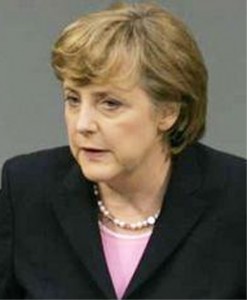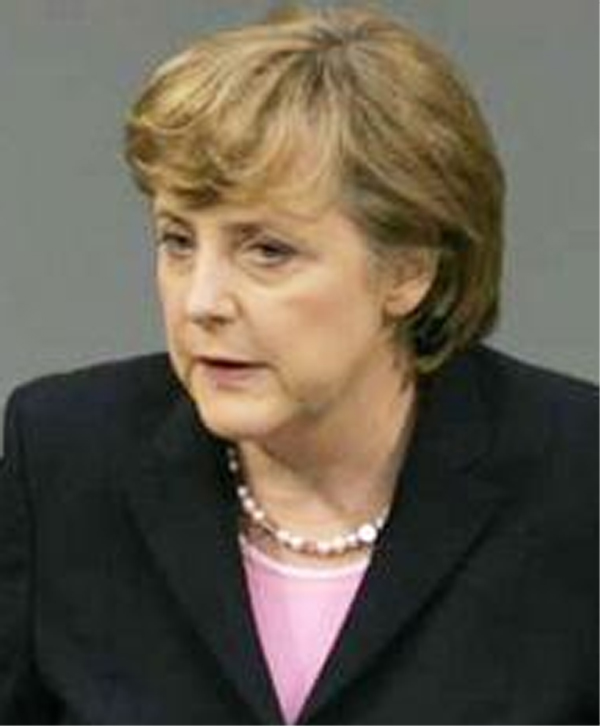BERLIN, (Reuters) – European leaders agreed yesterday to push for a global crackdown on tax havens and strict new regulation of hedge funds as part of a sweeping overhaul of financial rules designed to prevent future market meltdowns.
German Chancellor Angela Merkel invited fellow European Union leaders to a one-day summit in Berlin to prepare a common stance ahead of a broader meeting in London on April 2 of the G20 — a group of rich nations and major emerging economies charged with reforming global financial rules.

They backed a doubling of funds for the International Monetary Fund, which has spent billions of dollars in recent months shoring up economies in eastern Europe and elsewhere.
The leaders also agreed to strengthen the supervisory role of the Financial Stability Forum, a group set up by rich countries after the Asian financial crisis of the 1990s, and enlarge it to include emerging economies.
Since a first G20 summit on reforming global finance was held in Washington in November, recessions in Europe and the United States have deepened, forcing governments to push through massive stimulus packages that have raised fears of a return to protectionist policies seen in the 1930s.
“We’re dealing with an extraordinary international crisis the likes of which we have not seen for decades, both as regards financial markets and the global economy,” Merkel told reporters at the end of the summit.
“We believe that such an international crisis can only be solved jointly,” she said, sitting alongside leaders from Britain, France, Italy, Spain, the Netherlands, Czech Republic and Luxembourg, as well as the head of the European Commission.
European nations will need to win the backing of the new U.S. administration of President Barack Obama, as well as other big economies like China and Russia at the London summit in April if their plans are to see the light of day.
A summary of their conclusions issued at the end of the meeting voiced support for supervision of all financial markets, in language slightly stronger than pledges made in Washington.
“We have today underscored once again our conviction that all financial markets, products and participants must be subject to appropriate oversight or regulation, without exception and regardless of their country of domicile,” the statement read.
“This is especially true for those private pools of capital, including hedge funds, that may present a systemic risk.”
The statement also said a list of uncooperative jurisdictions, or tax havens, should be drawn up and a “toolbox of sanctions” be devised as soon as possible.
Germany has led a drive to crack down on countries like Liechtenstein and Switzerland, following a tax evasion scandal last year that ensnared prominent Germans.
The Berlin meeting took place after a week of tit-for-tat accusations of protectionism between European nations, with some of France’s partners objecting to its plans to offer 6 billion euros ($7.6 billion) in state loans to domestic carmakers.
In the final statement, the leaders commit to implementing stimulus measures and financial rescue plans in a manner that “limits distortions to competition to an absolute minimum”.
New tensions within the single currency bloc and the financial woes of European Union members to the east had threatened to overshadow the meeting in the German capital.
Ahead of the gathering, the IMF threw its weight behind the idea of a common European bond to alleviate pressure on euro states such as Ireland and Greece that are being forced to pay hefty premiums over stronger bloc members to finance their debt.
Germany, Europe’s benchmark issuer of debt, has rejected the idea of a euro-zone bond but the idea seems to be gaining supporters within the bloc who are worried about a sovereign debt crisis spreading through the bloc.
Italian Prime Minister Silvio Berlusconi told the news conference the leaders had not discussed this issue, but that it would be left for their finance ministers to explore.
European Commission President Jose Manuel Barroso and Luxembourg Prime Minister Jean-Claude Juncker, who is also the head of the Eurogroup forum o euro-zone finance ministers, tried to play down fears that members of the 10-year-old currency bloc were in trouble.
“I don’t see the risk of a payment default by a member of the euro zone,” he said.

